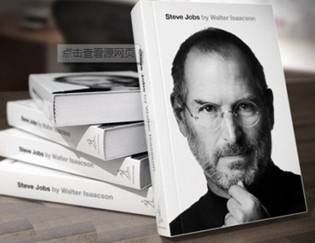End-to-end Control
彻底的控制
Jobs’s reluctance to make the Mac compatible with the architecture of the Lisa was motivated by more than rivalry or revenge. There was a philosophical component, one that was related to his penchant for control. He believed that for a computer to be truly great, its hardware and its software had to be tightly linked. When a computer was open to running software that also worked on other computers, it would end up sacrificing some functionality. The best products, he believed, were “whole widgets” that were designed end-to-end, with the software closely tailored to the hardware and vice versa. This is what would distinguish the Macintosh, which had an operating system that worked only on its own hardware, from the environment that Microsoft was creating, in which its operating system could be used on hardware made by many different companies.
乔布斯不愿意让Mac兼容丽萨的架构,并不只是出于竞争或复仇目的。还有一个原因,就是他对于控制权的迷恋。他认为一台电脑要真正做到优秀,它的硬件和软件是必须紧密联系在一起的。如果一台电脑要兼容那些在其他电脑上也能运行的软件,它必定要牺牲一些功能。他认为最好的产品是“一体的”,是端到端的,软件是为硬件量身定做的,硬件也是为软件度身定制的。正因为此,才使得麦金塔有别于微软(以及之后谷歌的安卓)所创造的环境,麦金塔上使用的操作系统只能在自己的硬件上运行,而微软和安卓的操作系统可以在许多不同厂家制造的硬件上运行。
“Jobs is a strong-willed, elitist artist who doesn’t want his creations mutated inauspiciously by unworthy programmers,” explained ZDNet’s editor Dan Farber. “It would be as if someone off the street added some brush strokes to a Picasso painting or changed the lyrics to a Dylan song.” In later years Jobs’s whole-widget approach would distinguish the iPhone, iPod, and iPad from their competitors. It resulted in awesome products. But it was not always the best strategy for dominating a market. “From the first Mac to the latest iPhone, Jobs’s systems have always been sealed shut to prevent consumers from meddling and modifying them,” noted Leander Kahney, author of Cult of the Mac.
“乔布斯是一个固执的杰出艺术家,他不希望看到自己创造的东西被二流的程序员给糟蹋了。”ZDNET的编辑丹·法伯(DanFarber)写道,“这就好像街边的某个人在毕加索的画作上涂了几笔或是改写了鲍勃·迪伦的歌词一样。”到后来,乔布斯软硬件结合的一体化产品理念也让iPhone、iPod和iPad从诸多竞争者中脱颖而出。这一理念造就了伟大的产品,但这并不总是占领市场的最佳战略。“从最初的最新的iPhone,乔布斯的系统一直都是封闭的,用户无法对其进行干预或修改。”《Mac信徒》一书的作者利安德·卡尼(LeanderKahney)说。
Jobs’s desire to control the user experience had been at the heart of his debate with Wozniak over whether the Apple II would have slots that allow a user to plug expansion cards into a computer’s motherboard and thus add some new functionality. Wozniak won that argument: The Apple II had eight slots. But this time around it would be Jobs’s machine, not Wozniak’s, and the Macintosh would have limited slots. You wouldn’t even be able to open the case and get to the motherboard. For a hobbyist or hacker, that was uncool. But for Jobs, the Macintosh was for the masses. He wanted to give them a controlled experience.
乔布斯当初和沃兹尼亚克争论是否应该在AppleII上设置扩展槽,从而允许用户在电脑主板上插入扩展卡来增加一些新功能时,就表现出了他心中那种控制用户体验的强烈欲望。沃兹尼亚克在那场争论中获得了胜利。AppleII上有8个扩展槽。但这一次,这台电脑是属于乔布斯的,不是沃兹尼亚克的。麦金塔电脑不会有扩展槽。用户甚至都不能打开机箱碰到主板。对于业余爱好者或者黑客来说,这就少了很多乐趣。但对乔布斯来说,麦金塔是为大众设计的。他想让用户的体验是可控的。他不希望看到有人往扩展槽里随便插上电路板,破坏他的优雅设计。
“It reflects his personality, which is to want control,” said Berry Cash, who was hired by Jobs in 1982 to be a market strategist at Texaco Towers. “Steve would talk about the Apple II and complain, ‘We don’t have control, and look at all these crazy things people are trying to do to it. That’s a mistake I’ll never make again.’” He went so far as to design special tools so that the Macintosh case could not be opened with a regular screwdriver. “We’re going to design this thing so nobody but Apple employees can get inside this box,” he told Cash.
“这反映了他喜欢掌控一切的个性。”贝里·卡什(BerryCash)说,卡什于1982年被乔布斯聘请到苹果担任市场策划,成为了德士古塔的常驻员工,“史蒂夫在谈到AppleII的时候会抱怨说:‘我们没有控制杈,只能看着那些人对它做疯狂的事情。我再也不会犯这种错误了。’”他甚至设计了专门的工具,这样的话用户就无法使用常规的螺丝刀来打开机箱。“我们要把这台电脑设计成只有苹果的员工才能进入箱子内部。”他告诉卡什。
Jobs also decided to eliminate the cursor arrow keys on the Macintosh keyboard. The only way to move the cursor was to use the mouse. It was a way of forcing old-fashioned users to adapt to point-and-click navigation, even if they didn’t want to. Unlike other product developers, Jobs did not believe the customer was always right; if they wanted to resist using a mouse, they were wrong.
乔布斯还决定取消麦金塔键盘上的光标方向键。要移动光标,唯一的方法就是使用鼠标。这就迫使一些传统的用户必须适应鼠标的指向和点击这样的操作,尽管他们并不情愿这么做。和其他的产品开发者不一样,乔布斯不相信顾客永远是正确的。如果他们抵制使用鼠标的话,那他们就错了。这又一次证明,乔布斯把制造伟大产品的激情摆在了比迎合消费者的欲望更为重要的位置上。
There was one other advantage, he believed, to eliminating the cursor keys: It forced outside software developers to write programs specially for the Mac operating system, rather than merely writing generic software that could be ported to a variety of computers. That made for the type of tight vertical integration between application software, operating systems, and hardware devices that Jobs liked.
取消方向键还有另一个好处(也是坏处):它迫使苹果公司以外的软件开发商们针对Mac的操作系统编写专门的程序,而不是编写一个通用的程序从而能安装到不同的电脑上。这有助于应用软件、操作系统和硬件设备间的紧密的垂直整合,而这正是乔布斯所钟爱的。
Jobs’s desire for end-to-end control also made him allergic to proposals that Apple license the Macintosh operating system to other office equipment manufacturers and allow them to make Macintosh clones. The new and energetic Macintosh marketing director Mike Murray proposed a licensing program in a confidential memo to Jobs in May 1982. “We would like the Macintosh user environment to become an industry standard,” he wrote. “The hitch, of course, is that now one must buy Mac hardware in order to get this user environment. Rarely (if ever) has one company been able to create and maintain an industry-wide standard that cannot be shared with other manufacturers.” His proposal was to license the Macintosh operating system to Tandy. Because Tandy’s Radio Shack stores went after a different type of customer, Murray argued, it would not severely cannibalize Apple sales. But Jobs was congenitally averse to such a plan. His approach meant that the Macintosh remained a controlled environment that met his standards, but it also meant that, as Murray feared, it would have trouble securing its place as an industry standard in a world of IBM clones.
将麦金塔的操作系统授杈给其他的厂家,进而允许别人能制造出麦金塔的仿制品,这样的提议对于渴望端到端整体掌控局面的乔布斯来说是极为反感的。新上任的麦金塔营销总监是精力充沛的迈克·默里(MikeMurray),他在1982年5月交给乔布斯的机密备忘录中,提出了一份授权计划。“我们希望麦金塔的用户环境可以成为业界标准,”他写道,“但这其中有一个障碍:如果想要使用这个用户环境,就必须购买Mac的硬件。很少有公司(实际上根本就没有)可以创造并维持一个无法与其他厂家共享的行业标准。”他建议将麦金塔的操作系统授权给坦迪公司。默里认为,坦迪旗下的RadioShack商店拥有的客户群与苹果公司不同,所以不会严重影响苹果产品的销售。但以乔布斯的天性,他必然反对这样的计划。他无法想象自己的完美创作不在自己的控制之下。最终,麦金塔依照乔布斯的标准,仍然作为一个封闭的用户环境存在,但正如默里所担心的,在一个到处都是IBM兼容机的世界里,麦金塔想要守住业界标准的地位将会遭到重重困难。











